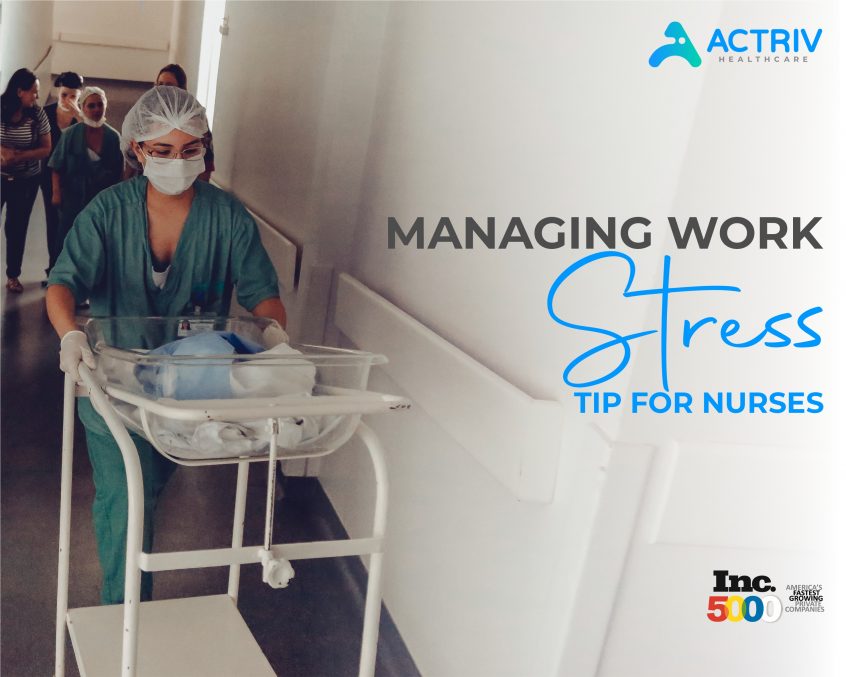“Nurses are a unique kind. They have this insatiable need to care for others, which is both their greatest strength and fatal flaw”
Jean Watson, American nurse professor and theorist, [1].
Rising Workplace Stress Levels in Nurses
The powerhouse that lies within the core of every nurse is what makes them uniquely special, living on in the hearts of every patient they touch. However, the long hours, emotional and physical exhaustion, hectic environments, and helping multiple patients simultaneously stir up astronomic levels of workplace stress. A 2020 study shows that more than 60% of surveyed nurses experience emotional exhaustion with expressed burnout, anxiety, and depression [2].
A career in nursing constantly remains a demanding job in every aspect, but the current global environment has skyrocketed workplace demands and stressors. Now, more than ever, nurses must tend to themselves as they do for so many others.
Managing Workplace Stress in Nursing
Here are three quick tips for managing workplace stress:
- Advocate for Workplace Needs
The long, chaotic shifts nurses experience regularly do not often allow for proper breaks and moments to gather yourself amidst intense situations. Talk to your supervisor about integrating healthy strategies for coping into your work environment. Some hospitals have created “recharge rooms” that allow staff to take a brief moment in a relaxing environment to cry, stretch, meditate, whatever is needed—a solution that is often well-received [3, 4].
- Track Stressors and Set Boundaries
Most nurses have a set of items they always carry—pens, a stethoscope, medical tape, and so on. Add a notepad to that list and jot down moments of high stress. Review what you wrote at the end of a workweek, look for themes, and set boundaries around workplace stress triggers wherever possible [5].
- Combat Compassion Fatigue
As Watson’s quote describes, incredible empathy is a nurse’s greatest strength and potential downfall. To avoid the negative impacts of compassion fatigue, the American Psychological Association recommends practicing self-care and self-compassion, examining personal thoughts about self-care, creating strong social support, and collaborating with colleagues [6, 7].
Sources:
Latest Posts
- Top 10 Health Clinics to Work for In Seattle
- Exploring Opportunities: The Rise of Travel Nursing Jobs in Portland, OR
- Top 10 Hospitals to Work For in Vancouver, WA – A Listicle for Nursing Professionals
- Exploring Home Health Care Nursing Opportunities in Portland
- Powering Healthcare and Sports: Actriv and the Seahawks Unite for Innovation and Impact

